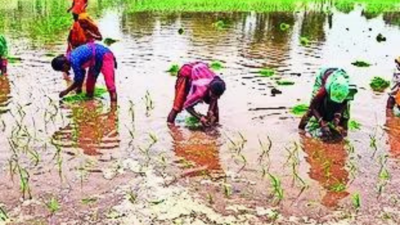Impact of Climate Change on Marginal Farmers: New report highlights urgent need for climate-resilient strategies

Impact of Climate Change on Marginal Farmers: New report highlights urgent need for climate-resilient strategies
MUMBAI: A report from The Forum of Enterprises for Equitable Development (FEED) in collaboration with the Development Intelligence Unit (DIU) on the Impact of Climate Change on Marginal Farmers has revealed that over 60% of marginal farmers surveyed faced significant crop losses due to extreme weather events in the past five years, with more than half reporting severe impacts. These climatic disturbances drastically reduced crop yields. 50% of farmers experienced at least half their standing paddy crop loss, and 42% reported similar losses for wheat. Such losses not only threaten food security but also exacerbate the economic instability of marginal farming households. The survey involved 6,615 respondents across 20 states in India. It showed that 40.9% of farmers have experienced droughts, while 32.6% have faced excessive rains, leading to significant crop losses. Only 30% of marginal farmers surveyed had access to crop insurance, and a mere 25% received timely financial credit. This highlights the need for improved access to financial credit , crop insurance, and advanced technological resources. The release event was marked by the presence of dignitaries and experts from the government, not-for-profit, agriculture-sector corporates, multilateral agencies and non-profit organisations sharing insights on the way forward. A panel discussion focused on the role of the private sector in supporting high-value agriculture and sustainable farming practices, highlighting the significance of public-private partnerships in fostering resilience among marginal farmers. The event concluded with a call for a paradigm shift towards climate-resilient agriculture, advocating for improved water management, enhanced farmer education, and stronger extension support services. Key recommendations include promoting sustainable and natural farming practices, increasing financial inclusion, and fostering partnerships for integrated solutions. Investing in natural resource management and farmer-led initiatives is also emphasized as crucial for building long-term resilience.



0 Comments